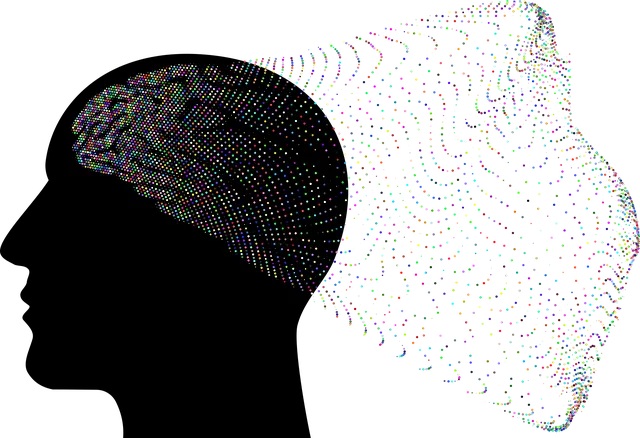Kaiser Permanente's Mental Health Initiative, spanning over a century, prioritizes members' holistic well-being by offering resilience-building programs, trauma support, and compassion cultivation. Using RFM (Recency, Frequency, Monetary value) analysis, they identify at-risk patients and provide tailored interventions like Social Skills Training and Mental Wellness Journaling. Resilience exercises, crucial for mental wellness, are integrated into their services, empowering individuals to navigate challenges constructively through conflict resolution techniques, mind over matter principles, and social skills training. The organization's commitment to mental health is evident through the Kaiser Permanente mental health number in Centennial, which facilitates access to these resources and drives continuous improvement based on outcome metrics and participant feedback.
In honor of its Centennial, Kaiser Permanente is pioneering innovative mental health initiatives. Among these, RFM (Recency, Frequency, Monetary value) analysis plays a pivotal role in building resilience through tailored exercises. This article delves into how RFM strategies enhance mental well-being. We explore the design and implementation of effective resilience training programs, providing a step-by-step guide for organizations aiming to foster resilience among their workforce. By measuring success and fostering continuous improvement, Kaiser Permanente’s approach ensures a lasting impact on employee mental health.
- Understanding Kaiser Permanente's Mental Health Initiative: A Centennial Focus
- The Role of RFM Analysis in Resilience Building
- Designing Effective Resilience Exercises for Mental Well-being
- Implementing RFM Strategies: A Step-by-Step Guide for Organizations
- Measuring Success and Continuous Improvement in Resilience Training
Understanding Kaiser Permanente's Mental Health Initiative: A Centennial Focus

Kaiser Permanente, a healthcare organization with a rich history spanning over a century, has recognized the importance of mental health and well-being as an integral part of its mission. The Mental Health Initiative, a testament to their commitment, focuses on fostering resilience and providing comprehensive support for members’ mental wellness. This initiative aims to address various aspects of mental health, including trauma support services, compassion cultivation practices, and the development of mental wellness coaching programs.
By prioritizing these strategies, Kaiser Permanente strives to create a more supportive environment, enhancing the overall well-being of its members. The Centennial focus highlights not only their long-term dedication but also their innovative approach to integrating evidence-based practices into healthcare systems. This forward-thinking strategy ensures that individuals have access to essential resources for managing and improving their mental health.
The Role of RFM Analysis in Resilience Building

Resilience building exercises play a pivotal role in fostering mental wellness and preparedness among individuals, especially in stressful environments. Kaiser Permanente, known for its comprehensive healthcare services, recognizes this need, particularly in the context of their mental health programs. By integrating RFM (Recency, Frequency, Monetary value) analysis, they can identify at-risk patients who may benefit from tailored interventions. This data-driven approach allows for targeted initiatives, such as Social Skills Training or Mental Wellness Journaling Exercises, ensuring resources are allocated efficiently.
The Kaiser Permanente mental health number serves as a crucial resource for accessing these services, enabling professionals to conduct risk assessments using RFM analysis. This assessment guides the development of personalized resilience-building strategies, including guidance on effective journaling practices, which can be a powerful tool in enhancing emotional coping mechanisms and social interactions—a key aspect often addressed in the Risk Assessment for Mental Health Professionals.
Designing Effective Resilience Exercises for Mental Well-being

Resilience exercises are a powerful tool for enhancing mental well-being, especially in today’s fast-paced and often stressful world. When designing effective resilience training programs, it’s essential to consider the unique needs and challenges faced by individuals or communities. At Kaiser Permanente, for instance, the mental health number highlights their commitment to supporting members’ overall well-being, which includes promoting resilience.
One effective approach is incorporating Conflict Resolution Techniques and Mind Over Matter Principles. Teaching participants how to navigate conflicts constructively and harnessing the power of positive thinking can build emotional strength. Additionally, Social Skills Training can foster better connections, offering alternative ways to respond to stressors and strengthening support networks. These exercises not only help individuals cope with challenges but also empower them to thrive in various aspects of life, from personal relationships to career pursuits.
Implementing RFM Strategies: A Step-by-Step Guide for Organizations

Implementing RFM (Resilience, Flexibility, and Mental Health) strategies is a comprehensive process that organizations can adopt to foster a resilient workplace culture. This step-by-step guide aims to navigate institutions through the journey of enhancing employee well-being, especially in the context of mental health services, akin to what Kaiser Permanente offers with its extensive mental health resources.
The first step involves assessing the current state of mental health support within the organization. This includes evaluating existing policies and programs, such as a Community Outreach Program Implementation, that promote resilience and flexibility. Identify areas for improvement by conducting surveys or focus groups to understand employee needs. Subsequently, develop a tailored RFM strategy aligned with the organization’s culture and goals, ensuring it incorporates evidence-based Stress Reduction Methods. Implement these strategies gradually, providing training and resources to managers and employees alike. Foster open communication channels and encourage participation in mental health initiatives, especially in regions like Centennial, where access to specialized services is readily available through local Kaiser Permanente facilities.
Measuring Success and Continuous Improvement in Resilience Training

Measuring Success and Continuous Improvement are paramount aspects when implementing Resilience Building Exercises (RFM). At Kaiser Permanente, the mental health initiative centres on not just quantifying outcomes but also understanding participant experiences to refine programs like the Centennial Mental Health Education Programs Design. This involves tracking key metrics such as enhanced coping skills development and confidence boosting among participants over time. By gathering regular feedback from individuals who engage in these exercises, the organization can identify areas of success and pinpoint aspects that need improvement.
Such data-driven approaches enable mental health professionals to adapt RFM strategies, ensuring they remain effective and relevant. Continuous improvement aligns with the overall goal of enhancing resilience, fostering positive mental health, and ultimately reducing reliance on traditional healthcare services. This iterative process encourages a dynamic learning environment where both participants and facilitators grow, benefiting from an evolving curriculum designed to meet the diverse needs of the community.
Kaiser Permanente’s Mental Health Initiative, with a Centennial focus on well-being, effectively leverages RFM (Resilience, Flexibility, and Mastery) analysis to enhance resilience. By designing tailored exercises that promote mental wellness, organizations can implement these strategies through structured guides, leading to improved employee outcomes. Continuous measurement and improvement ensure the success of resilience training programs, addressing a critical aspect of modern workforce care. This comprehensive approach, rooted in evidence, is key to fostering a resilient and thriving workplace culture for Kaiser Permanente and beyond.






